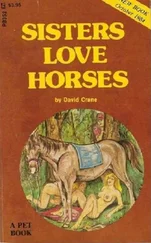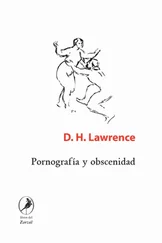David Lawrence - Women in Love
Здесь есть возможность читать онлайн «David Lawrence - Women in Love» весь текст электронной книги совершенно бесплатно (целиком полную версию без сокращений). В некоторых случаях можно слушать аудио, скачать через торрент в формате fb2 и присутствует краткое содержание. Год выпуска: 2003, Жанр: Классическая проза, Современные любовные романы, на английском языке. Описание произведения, (предисловие) а так же отзывы посетителей доступны на портале библиотеки ЛибКат.
- Название:Women in Love
- Автор:
- Жанр:
- Год:2003
- ISBN:нет данных
- Рейтинг книги:3 / 5. Голосов: 1
-
Избранное:Добавить в избранное
- Отзывы:
-
Ваша оценка:
- 60
- 1
- 2
- 3
- 4
- 5
Women in Love: краткое содержание, описание и аннотация
Предлагаем к чтению аннотацию, описание, краткое содержание или предисловие (зависит от того, что написал сам автор книги «Women in Love»). Если вы не нашли необходимую информацию о книге — напишите в комментариях, мы постараемся отыскать её.
Women in Love — читать онлайн бесплатно полную книгу (весь текст) целиком
Ниже представлен текст книги, разбитый по страницам. Система сохранения места последней прочитанной страницы, позволяет с удобством читать онлайн бесплатно книгу «Women in Love», без необходимости каждый раз заново искать на чём Вы остановились. Поставьте закладку, и сможете в любой момент перейти на страницу, на которой закончили чтение.
Интервал:
Закладка:
Gerald! Could he fold her in his arms and sheathe her in sleep? Ha! He needed putting to sleep himself—poor Gerald. That was all he needed. What did he do, he made the burden for her greater, the burden of her sleep was the more intolerable, when he was there. He was an added weariness upon her unripening nights, her unfruitful slumbers. Perhaps he got some repose from her. Perhaps he did. Perhaps this was what he was always dogging her for, like a child that is famished, crying for the breast. Perhaps this was the secret of his passion, his forever unquenched desire for her—that he needed her to put him to sleep, to give him repose.
What then! Was she his mother? Had she asked for a child, whom she must nurse through the nights, for her lover. She despised him, she despised him, she hardened her heart. An infant crying in the night, this Don Juan.
Ooh, but how she hated the infant crying in the night. She would murder it gladly. She would stifle it and bury it, as Hetty Sorrell did. No doubt Hetty Sorrell's infant cried in the night—no doubt Arthur Donnithorne's infant would. Ha—the Arthur Donnithornes, the Geralds of this world. So manly by day, yet all the while, such a crying of infants in the night. Let them turn into mechanisms, let them. Let them become instruments, pure machines, pure wills, that work like clock-work, in perpetual repetition. Let them be this, let them be taken up entirely in their work, let them be perfect parts of a great machine, having a slumber of constant repetition. Let Gerald manage his firm. There he would be satisfied, as satisfied as a wheelbarrow that goes backwards and forwards along a plank all day—she had seen it.
The wheel-barrow—the one humble wheel—the unit of the firm. Then the cart, with two wheels; then the truck, with four; then the donkey-engine, with eight, then the winding-engine, with sixteen, and so on, till it came to the miner, with a thousand wheels, and then the electrician, with three thousand, and the underground manager, with twenty thousand, and the general manager with a hundred thousand little wheels working away to complete his make-up, and then Gerald, with a million wheels and cogs and axles.
Poor Gerald, such a lot of little wheels to his make-up! He was more intricate than a chronometer-watch. But oh heavens, what weariness! What weariness, God above! A chronometer-watch—a beetle—her soul fainted with utter ennui, from the thought. So many wheels to count and consider and calculate! Enough, enough—there was an end to man's capacity for complications, even. Or perhaps there was no end.
Meanwhile Gerald sat in his room, reading. When Gudrun was gone, he was left stupefied with arrested desire. He sat on the side of the bed for an hour, stupefied, little strands of consciousness appearing and reappearing. But he did not move, for a long time he remained inert, his head dropped on his breast.
Then he looked up and realised that he was going to bed. He was cold. Soon he was lying down in the dark.
But what he could not bear was the darkness. The solid darkness confronting him drove him mad. So he rose, and made a light. He remained seated for a while, staring in front. He did not think of Gudrun, he did not think of anything.
Then suddenly he went downstairs for a book. He had all his life been in terror of the nights that should come, when he could not sleep. He knew that this would be too much for him, to have to face nights of sleeplessness and of horrified watching the hours.
So he sat for hours in bed, like a statue, reading. His mind, hard and acute, read on rapidly, his body understood nothing. In a state of rigid unconsciousness, he read on through the night, till morning, when, weary and disgusted in spirit, disgusted most of all with himself, he slept for two hours.
Then he got up, hard and full of energy. Gudrun scarcely spoke to him, except at coffee when she said:
'I shall be leaving tomorrow.'
'We will go together as far as Innsbruck, for appearance's sake?' he asked.
'Perhaps,' she said.
She said 'Perhaps' between the sips of her coffee. And the sound of her taking her breath in the word, was nauseous to him. He rose quickly to be away from her.
He went and made arrangements for the departure on the morrow. Then, taking some food, he set out for the day on the skis. Perhaps, he said to the Wirt, he would go up to the Marienhutte, perhaps to the village below.
To Gudrun this day was full of a promise like spring. She felt an approaching release, a new fountain of life rising up in her. It gave her pleasure to dawdle through her packing, it gave her pleasure to dip into books, to try on her different garments, to look at herself in the glass. She felt a new lease of life was come upon her, and she was happy like a child, very attractive and beautiful to everybody, with her soft, luxuriant figure, and her happiness. Yet underneath was death itself.
In the afternoon she had to go out with Loerke. Her tomorrow was perfectly vague before her. This was what gave her pleasure. She might be going to England with Gerald, she might be going to Dresden with Loerke, she might be going to Munich, to a girl-friend she had there. Anything might come to pass on the morrow. And today was the white, snowy iridescent threshold of all possibility. All possibility—that was the charm to her, the lovely, iridescent, indefinite charm,—pure illusion All possibility—because death was inevitable, and NOTHING was possible but death.
She did not want things to materialise, to take any definite shape. She wanted, suddenly, at one moment of the journey tomorrow, to be wafted into an utterly new course, by some utterly unforeseen event, or motion. So that, although she wanted to go out with Loerke for the last time into the snow, she did not want to be serious or businesslike.
And Loerke was not a serious figure. In his brown velvet cap, that made his head as round as a chestnut, with the brown-velvet flaps loose and wild over his ears, and a wisp of elf-like, thin black hair blowing above his full, elf-like dark eyes, the shiny, transparent brown skin crinkling up into odd grimaces on his small-featured face, he looked an odd little boy-man, a bat. But in his figure, in the greeny loden suit, he looked CHETIF and puny, still strangely different from the rest.
He had taken a little toboggan, for the two of them, and they trudged between the blinding slopes of snow, that burned their now hardening faces, laughing in an endless sequence of quips and jests and polyglot fancies. The fancies were the reality to both of them, they were both so happy, tossing about the little coloured balls of verbal humour and whimsicality. Their natures seemed to sparkle in full interplay, they were enjoying a pure game. And they wanted to keep it on the level of a game, their relationship: SUCH a fine game.
Loerke did not take the toboganning very seriously. He put no fire and intensity into it, as Gerald did. Which pleased Gudrun. She was weary, oh so weary of Gerald's gripped intensity of physical motion. Loerke let the sledge go wildly, and gaily, like a flying leaf, and when, at a bend, he pitched both her and him out into the snow, he only waited for them both to pick themselves up unhurt off the keen white ground, to be laughing and pert as a pixie. She knew he would be making ironical, playful remarks as he wandered in hell—if he were in the humour. And that pleased her immensely. It seemed like a rising above the dreariness of actuality, the monotony of contingencies.
They played till the sun went down, in pure amusement, careless and timeless. Then, as the little sledge twirled riskily to rest at the bottom of the slope,
'Wait!' he said suddenly, and he produced from somewhere a large thermos flask, a packet of Keks, and a bottle of Schnapps.
'Oh Loerke,' she cried. 'What an inspiration! What a COMBLE DE JOIE INDEED! What is the Schnapps?'
Читать дальшеИнтервал:
Закладка:
Похожие книги на «Women in Love»
Представляем Вашему вниманию похожие книги на «Women in Love» списком для выбора. Мы отобрали схожую по названию и смыслу литературу в надежде предоставить читателям больше вариантов отыскать новые, интересные, ещё непрочитанные произведения.
Обсуждение, отзывы о книге «Women in Love» и просто собственные мнения читателей. Оставьте ваши комментарии, напишите, что Вы думаете о произведении, его смысле или главных героях. Укажите что конкретно понравилось, а что нет, и почему Вы так считаете.











